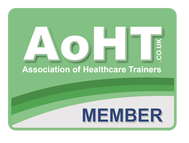First Aid & Medical
Wilderness and Survival Medicine
This 2nd Edition contains a wealth of new material and 46 expanded chapters including Information on Minor Injuries and Illness, Lifesaving Surgery, Environmental Problems and Tactical Considerations Life is uncertain, people who are involved in survival situations, disasters and accidents are often unprepared both in knowledge and supplies.It is hoped it will be useful to those who partake in extreme and wilderness sports and activities as well as those who are interested in survivalism and preparedness.
First Aid for Police, Security, Firearms and Close Protection Officers
Chris Breen has been involved in Police first aid training from basic to enhanced D13 levels and has acted as an expert assessor for officers in training in the medical management of road traffic collisions.
He is also involved in Joint Emergency Service interoperability (JESIP) Tactical and Operational Training. The aim of this work is to provide the officers with the knowledge and skills to deal with a variety of medical conditions and traumatic injuries beyond the scope of normal first aid which they may potentially encounter during their duties.
The British Medical association (BMA) have published guidance on the “Health care of detainees in Police stations”. A large proportion of detainees will be vulnerable for a number of reasons; this could be due to poverty, mental health issues or drug or alcohol dependence.
Clinical Assessment and Diagnostic Skills for Nurses, Paramedics and ECPs
Chris Breen is a Registered Nurse who served with the RAMC, a Paramedic and Clinical Tutor with additional qualifications in Trauma and Remote Medicine. He has had a long term interest in emergency medicine and is the Medical Advisor for a Preparedness group and runs courses in Survival Medicine.
Craig Ellis is a Medical doctor who trained as a Specialist Emergency Physician. He has a special interest in austere medicine and medical practice during prolonged disasters. He has both worked and taught austere medical practice
Gareth J Mallon is a Paramedic and Clinical Tutor author of “Let`s Make The ECG Easier to Understand”.
The contents of this book are derived from a number of articles which have been published online and the syllabus of Course they run.
Its aim is to provide key information on Clinical Assessment and Diagnosis in an understandable way, suitable for both beginners and Experienced practitioners.
In addition to detailed medical and trauma assessments, explanations of common diseases and conditions at provided with signs and symptoms. Red flag indicators for each body system and individual conditions are also detailed.
INTRODUCTION
CHAPTER 1 EXAMINATION OF PATIENTS
CHAPTER 2 ASSESSING CHILDREN AND THE ELDERLY
CHAPTER 3 FRACTURES & SPINAL TRAUMA
CHAPTER 4 DISLOCATIONS
CHAPTER 5 WOUNDS AND BURNS
CHAPTER 6 HEAD, CHEST AND ABDOMINAL TRAUMA
CHAPTER 7 ROAD TRAFFIC COLLISIONS (RTCS)
CHAPTER 8 JOINTS, MUSCLES, TENDONS AND LIGAMENTS
CHAPTER 9 ALLERGIC REACTION
CHAPTER 10 RESPIRATORY & CARDIAC
CHAPTER 11 ABDOMINAL ILLNESSES
CHAPTER 12 NEUROLOGICAL PROBLEMS
CHAPTER 13 COMMON INFECTIOUS DISEASES
CHAPTER 14 DIABETES
CHAPTER 15 POISONING
CHAPTER 16 SHOCK
CHAPTER 17 EAR, NOSE AND THROAT (ENT)
CHAPTER 18 EYE PROBLEMS
CHAPTER 19 SKIN CONDITIONS
CHAPTER 20 MINOR MEDICAL PROBLEMS
CHAPTER 21 MEDICATION
CHAPTER 22 VACCINES (IMMUNISATION)
CHAPTER 23 ENVIRONMENTAL PROBLEMS
CHAPTER 24 BITES, STINGS AND PARASITES
CHAPTER 25 CLINICAL OBSERVATIONS &TESTS
CHAPTER 26 DENTAL PROBLEMS
CHAPTER 27 SEXUALLY TRANSMITTED DISEASES (STD)
CHAPTER 28 OBSTETRICS AND GYNAECOLOGY
CHAPTER 29 NUCLEAR BIOLOGICAL & NERVE AGENT WARFARE
CHAPTER 30 GUNSHOT WOUNDS, EXPLOSIONS & TACTICAL CONSIDERATIONS
CHAPTER 31 TRIAGE
CHAPTER 32 NUTRITION
CHAPTER 33 PSYCHOLOGICAL PROBLEMS
CHAPTER 34 ECG INTERPRETATION
APPENDIX 1 GCS
APPENDIX 2 MEDICAL TERMINOLOGY
APPENDIX 3 FURTHER READING
INDEX

